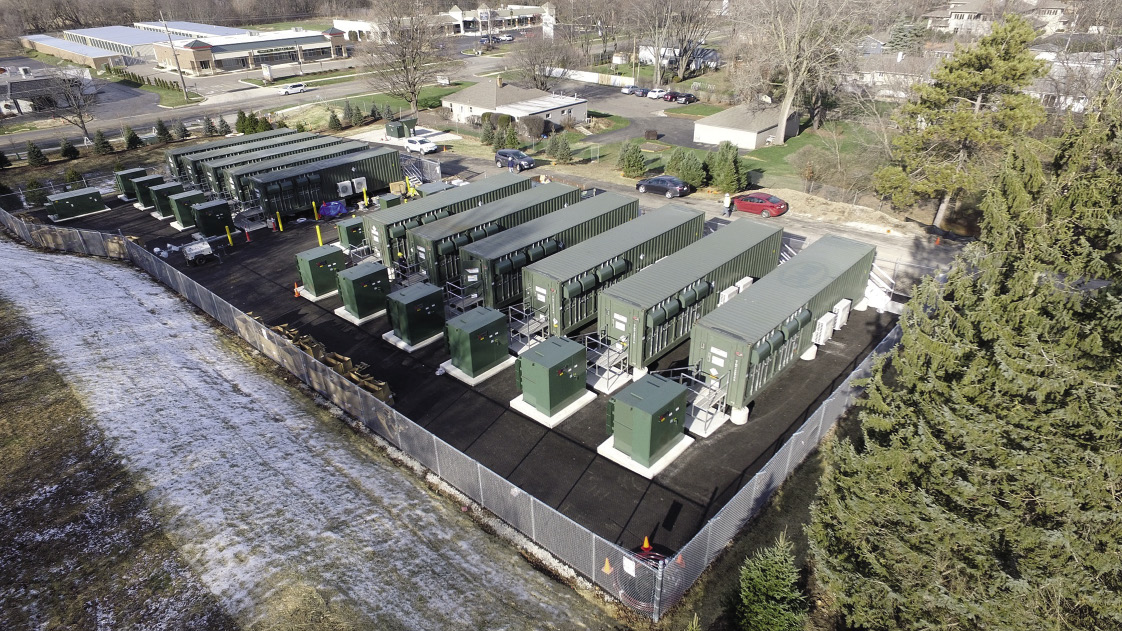RAAEY – Greece's newly formed regulatory authority for waste, energy, and water – has revealed that the country will allocate 1 GW of new energy storage capacity. The program consists of three separate auctions, with capacities of 400 MW, 300 MW, and 300 MW.
Greece’s energy storage program will draw €341 million ($372.3 million) from the European Union’s post-pandemic recovery fund, which was approved last year by the European Commission.
The program’s first and second tenders will focus on standalone energy storage projects connected to the Greek electricity transmission network. The tenders exclude the island network of Crete, which was linked to Greece’s mainland power grid in 2021.
Greece's energy storage scheme allows projects from the European Economic Area (EEA) outside of Greece, provided there is an electricity interconnection and fully coupled power grids between Greece and the EEA country. Currently, only Bulgaria meets these expectations. The eligible energy storage capacity from Bulgaria for Greece's first and second tenders depends on energy trading volumes and other criteria, with a limit of 31 MW.
The third tender of Greece's energy storage program focuses on standalone projects in designated energy transition areas, such as former coal mining regions. These projects will be connected to the transmission network.
The application process for the first tender closes on July 10, and the list of qualified bidders will be published on August 10. The auction date will be announced later this year. In addition, the application process for the second and third energy storage tenders will open by the end of this year.
Capex support
Greece's subsidy support for winning energy storage projects in the upcoming tenders is generous.
During the construction phase, all winning projects will receive a one-time payment of €200,000 per MW, which serves as a capital expenditure subsidy. Market sources suggest that this subsidy can cover approximately 40% of the battery project's construction costs at current prices.
In addition, winning projects will be granted contracts for difference (CfDs) that guarantee a certain income for 10 years. The CfD prices will be determined through the tenders. For the first energy storage auction, the regulator has set a capped CfD price of €115,000 per MW per year.
As a result, winning projects must participate in the energy market, such as Greece's wholesale electricity trading and secondary balancing services market. Each year, the government will assess the projects' market earnings. If the earnings are lower than the CfD price, investors will receive a top-up payment to bridge the difference. Conversely, if the earnings exceed the CfD price, the surplus must be returned to the state.
Energy storage projects participating in Greece's program are prohibited from engaging in the energy derivatives market and are unable to enter power purchase agreements (PPAs) with private investors.
Tender rules
To qualify for Greece's energy storage tenders, projects must possess an energy storage license, ensure a minimum 2-hour capacity duration, provide a minimum 1 MW injection capacity, and commence construction after a tender concludes.
The regulator has implemented rules to ensure competitiveness. The tender's subscription rule is set at 100%, meaning that at least 800 MW of energy storage capacity must compete for selection to award 400 MW of capacity. This rule maintains the auction's competitiveness, according to the regulator.
pv magazine print edition
Each tender must include a minimum of four independent participants with no business ties. Additionally, a participant cannot bid for more than 25% of the energy storage capacity offered in the auction. In Greece's energy storage program, a participant is limited to a maximum of 100 MW in the combined first and second tenders.
Tender participants face strict financial requirements, limiting bids to major players. Qualified participants must provide the regulator with three letters of guarantee from banks and financial institutions, demonstrating financial robustness: participation letter of guarantee (€35,000/MW), letter of guarantee for timely business performance (€250,000/MW), and letter of guarantee for quality operation (€200,000/MW). An application fee of €2,500 per submission to the regulator is also applicable.
This content is protected by copyright and may not be reused. If you want to cooperate with us and would like to reuse some of our content, please contact: editors@pv-magazine.com.



3 comments
By submitting this form you agree to pv magazine using your data for the purposes of publishing your comment.
Your personal data will only be disclosed or otherwise transmitted to third parties for the purposes of spam filtering or if this is necessary for technical maintenance of the website. Any other transfer to third parties will not take place unless this is justified on the basis of applicable data protection regulations or if pv magazine is legally obliged to do so.
You may revoke this consent at any time with effect for the future, in which case your personal data will be deleted immediately. Otherwise, your data will be deleted if pv magazine has processed your request or the purpose of data storage is fulfilled.
Further information on data privacy can be found in our Data Protection Policy.